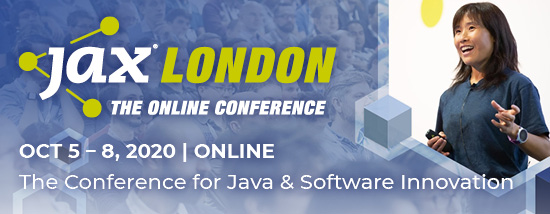A research study by The National Center for Women & Information Technology showed that “gender diversity has specific benefits in technology settings,” which could explain why tech companies have started to invest in initiatives that aim to boost the number of female applicants, recruit them in a more effective way, retain them for longer, and give them the opportunity to advance. But is it enough?
Three years ago, we launched a diversity series aimed at bringing the most inspirational and powerful women in the tech scene to your attention. Today, we’d like you to meet Kim Wachtel, VP of growth engineering and UX at JumpCloud.

Today’s Woman in Tech: Kim Wachtel, VP of growth engineering and UX at JumpCloud
Kim Wachtel, as vice president of growth engineering and UX at JumpCloud, designs innovative technology experiences that flex to people. Kim has 20 years of insight into all phases of the product development life-cycle. Kim’s career includes positions as a developer, software engineer, product manager, UX designer, and growth engineer and spans all size of business, from small startups to the 126-year-old General Electric.
When did you become interested in technology?
I had a geology professor who got me interested in some of the more tech-driven aspects of Geology (remote sensing image analysis, Geographic Information Systems (GIS)). I got a summer internship with a consulting company that was working on some GIS projects. I literally sat behind one of my co-workers and watched him code. I asked him questions when I didn’t understand what he was doing, and, soon, I was building database queries on my own and learned other coding skills.
How did you end up in your career path?
There was no grand plan. I envisioned getting a more technical degree and then getting an MBA later. I saw that work for my dad, and I thought it would be interesting to have blended technical and business education. I got an internship in college where they taught me to code. When I graduated from my master’s program in Hydrogeology, I applied for jobs doing environmental work and in tech, and, at that time, it was way easier to get a job in tech. So, that’s the direction I went.
I spent the first 6 years of my career as a developer, then I moved into UX, then Product Management, and, in the past 9 years, I’ve been in leadership roles spanning from Product Management to UX to Business Systems to Engineering. I now lead a cross-functional department with Product, UX, Engineering, and Tech Writing for JumpCloud. Our whole purpose is to drive business growth by delivering a great experience. It’s an awesome blend of the areas I’ve spent time in during my career and pulls them all together.
As for obstacles…I’ve been the only (or one of very few) women at the table for large portions of my career. When I started as an intern, I was the only woman in the office in a technical role. Everyone I worked with directly was at least 7 years my senior, male, and in most cases, a good 6 inches taller than I am. I could have easily been intimidated (and was at times). I experienced a few incidents of sexual harassment (nothing too major, but definitely situations that made me highly uncomfortable). Fortunately, I worked for a great manager who supported and encouraged me, my direct team was solid, and I learned a ton. Mostly, I’d say I’ve been extremely lucky. But, I have done some things to overcome (or work around) obstacles:
- I don’t like working with assholes, and I’m pretty good at spotting them. I listen to my gut and opt into companies and teams where I sense that I’ll be respected and can grow. I’ve always been willing to take the risk of being unemployed for a bit longer to ensure I find a place that’s a good fit for me.
- I trust that I have worth. I’m reflective and can be highly self-critical, so I definitely have episodes of crushing self-doubt. But, when I’ve had those moments, I’ve asked myself whether it’s something I care to power through, and, if yes, I figure out a plan to build my confidence and I go do it.
- I’m persistent (my husband would say stubborn). I don’t like being told I can’t do something (whether it’s explicit or implicit)…if it’s something I care about, I’ll figure out a way to move forward, knowing that it might take some time.
- I’ve worked hard to build self-awareness and to have a growth mindset. I think perfectionism can trip a lot of women up, and I have perfectionist leanings. Perfectionism is tricky because it can serve you really well in school and in early career growth, but there will come a point where it holds you back. It’s not possible to be perfect at everything…you’ll be too slow, you’ll miss opportunities, and you’ll create a ton of anxiety for yourself. I’ve trained myself to spot when my perfectionism is working against me and to challenge myself to move forward sooner than I’d naturally be comfortable doing. I’m not done with this journey, but it does get easier the more I practice. And, I let myself express my perfectionism in more personal ways (an art project, a well-organized pantry, pulling weeds, you get my drift).
- I love naps, and I’m not afraid to take them on the weekends.
Did you receive support from your family and friends? Do you have a role model?
Absolutely. My dad was an engineer by education and career. My mom stayed at home when my brother and I were little and moved into teaching and sales when we got a bit older. My dad strongly encouraged me to major in some type of engineering, and I squarely disregarded his advice as any rebellious teenage girl would do. But, the message that he believed I could go into a technical field got in. When opportunities in tech presented themselves, I figured I could do it. My mom showed me that a woman can kick ass at her job and be a great human and mother. She let me be who I was and also taught me some basic career management skills. Both of my parents let me find my way. And, they paid for me to go to college. I know not everyone has that opportunity, so I truly appreciate it.
My husband is an amazing partner. He’s supported me, encouraged me, lifted me up when I needed it, and called me out when I needed it. And, we share the work at home.
In a work context, I’ve many role models. I worked with a female engineer who got me into UX and was my mentor. I’m lucky to have learned from her experiences and that she took me under her wing. I didn’t ask her to do it, she just did it. I’ll always appreciate her advocacy and guidance, and she’s still a good friend (who I don’t see nearly often enough!)
Perfectionism is tricky because it can serve you really well in school and in early career growth, but there will come a point where it holds you back.
Did someone ever try to stop you from learning and advancing in your professional life?
I’m not aware of any overt attempts to hold back my learning or professional life. I can think of times when I had an idea for how to approach things differently, and it didn’t get traction with my manager or another leader. I can think of examples when I should have been more assertive, and I can think of examples when I didn’t get the initial support I wanted but found a way to either learn on my own or advocate for my perspective differently. I’ve had good success when I’ve developed strong relationships with my managers, and when I’ve had open conversations with them when I’m feeling stagnant.
A side note on this question, I’ve been managing people for almost 9 years, and I reflect back on times when I held others back (not maliciously, of course). It’s easy for managers to unintentionally hold others back, especially newer managers who are just learning what it means to have responsibility for someone else’s career. I can think of times where I didn’t want to give someone a challenge because I didn’t want to overload them, or I was fearful of what would happen if someone valuable moved into another role, or I didn’t find a way to give the critical feedback a person desperately needed to grow, or the organization wasn’t growing, so I couldn’t find the right assignment or role to support someone’s passion and talents. I bring this up because managers/leaders/executives are human and make mistakes.
Your manager should support you and you should expect that from them. If you’re not feeling supported or you’re not clear on where you stand with your performance, bring it up with your manager. The good ones will give you the feedback and coaching you need. You deserve that. And, you also need to take responsibility and ownership for your own growth. Your manager should support you, but, ultimately, your growth and your career are yours to drive.
A day in Kim’s life
I’m VP of Growth Engineering & UX at JumpCloud. JumpCloud is a cloud directory platform designed to secure identities, manage devices, and provide safe access to all types of IT resources – on premise, in the cloud, Windows, Mac, or Linux. In Growth Engineering & UX, we work to deliver such an amazing, self-serve experience that our customers fall in love with our product, feel compelled to do business with us, and continue to grow with us.
My typical workday involves interacting with folks from all over the business and with our customers. I work to carve off some time for strategic thinking and planning, and I work to be responsive to the folks on my team so they have what they need to move their work forward. If there’s a customer issue or a hiring conversation, those take top priority. I get to be involved in a lot of aspects of the business, have coaching conversations, celebrate our wins, and deal with urgent problems. In other words, there isn’t really a “typical” day. And, it’s not boring, that’s for sure.
What are you most proud of in your career?
That I’ve been curious, open-minded about a variety of opportunities, and built great relationships.
Your manager should support you and you should expect that from them. If you’re not feeling supported or you’re not clear on where you stand with your performance, bring it up with your manager.
Why aren’t there more women in tech? What’s your take on that?
In my experience, many women don’t even consider a career in tech as an option…maybe they think they’re not good at math, or they want to pursue a more creative profession, or they don’t feel they can impact the world. It’s understandable that many women would look at the stereotype of what a tech worker is and just not see themselves in the field.
We also lose women who start out in tech but decide not to stay. In my own experience, I moved on from coding because I started to feel stagnant. I looked at my (mostly male) co-workers who went home in the evenings and weekends and coded on personal projects. I didn’t identify with that, and I didn’t see any other models of what it could look like for me to stay in a developer role. I considered moving out of tech. At roughly the same time, my mentor told me about this thing called User Experience and advocated for me to get training. I switched to a full-time focus in UX, and it re-energized me.
Looking back on it, I’m confident I could have grown as a developer and found a way to stay engaged, but I didn’t know what it looked like at the time. I also know that some women who are interested in tech face overt discrimination and decide it’s not worth it. Fortunately, that hasn’t been my experience, but it happens.
Could you name a few challenges (or obstacles) women in tech face?
We don’t fit the mold of what people expect to see in tech, so it can take us longer to build credibility that we know our stuff.
Self-doubt/imposter syndrome. When you don’t fit the mold, it’s easier to feel like others belong more than you and to start doubting your own abilities. It can be a self-fulfilling prophecy.
Isolation and frustration. When you’re the only woman at the table consistently, it can be isolating and sometimes frustrating to get your point across.
Balancing work life and home life. Unfortunately, many women who have families are in a position where they need to take on the majority of child care and home responsibilities. This can limit the amount of time and energy to focus on career growth.
How would our world be different if more women worked in STEM?
More diversity of thought — not all women are the same, not all men are the same, but a more diverse workforce will have the side-effect of more diverse ideas and skills. More ideas and broader skills can mean more innovation.
More space for dialog for social impacts of technology.
More women able to support themselves and their families. More men able to choose alternate life paths (focusing on raising kids, for instance). More female same-sex couples able to earn a fair living.
Less bias baked into technology (think machine learning algorithms and accessibility of technology solutions for a wider group of people).
Your manager should support you, but, ultimately, your growth and your career are yours to drive.
The discussion about diversity is gaining momentum. How long will it take to see results from the current debate?
We’ve gained a lot of traction over the last five years or so with the dialogue around diversity in tech. We still have a ton of work to do. More girls opting for STEM degrees and training programs will help in the long term. In the near term, in-depth technical training programs can be an option for women who are looking to make a career change into tech. I’m optimistic it will get better but expect it will take time.
There’s a shortage of people with technical skills, so women can accelerate the timeline by building these skills and looking for that first opportunity.
And, hiring managers can accelerate the timeline by getting educated about unconscious bias, and hiring and retention practices that are welcoming to people of all genders and backgrounds.
What advice (and tips) would you give to women who want a tech career?
The first thing to know: you can earn a great living in tech. And, there’s generally a shortage of highly technical people, so the more technical your skills are, the more likely it is that you’ll see strong demand for your skills (and the corresponding pay to go along with them).
Tech companies love college degrees in related fields (Comp Sci, for instance), but more hiring managers and recruiters are willing to look for alternate training programs or work experience rather than a college degree. When you’re applying/interviewing, get into a confident headspace.
Own your own career, recognize your worth, and look for a place that meets your needs (in addition to considering whether you will be a good fit for them). Do some research, ask questions, and listen to your gut. If you feel drained and frustrated after an interview, you might be picking up on something that indicates it wouldn’t be a good fit for you.
And, we all know there’s pay inequity in many fields, including tech. More progressive companies are starting to move away from setting compensation based on previous compensation because it can build a persistent disadvantage against women and people of color.
If a recruiter or hiring manager asks what you’re making now, reframe your answer to let them know what you’re targeting in your next role. You’ll want to do some research to understand what a fair salary is for your skillset, the role you’re seeking, and your experience. Also, consider growth opportunities along with base salary and other benefits. Sometimes it might be worth taking a lower position/salary initially if there’s a clearer path to growth.
More Women in Tech:
- Women in Tech: “Celebrate your wins, big and little”
- Women in Tech: “Experiment, deliver, retrospect, and keep learning!”
- Women in Tech: “You are the best author of your own career path”
- Women in Tech: “Dare to do what you are interested in!”
- Women in Tech: “Join meetups and other women tech groups”
For even more Women in Tech, click here
The post Women in Tech: “Take responsibility and ownership for your own growth” appeared first on JAXenter.
Source : JAXenter

















